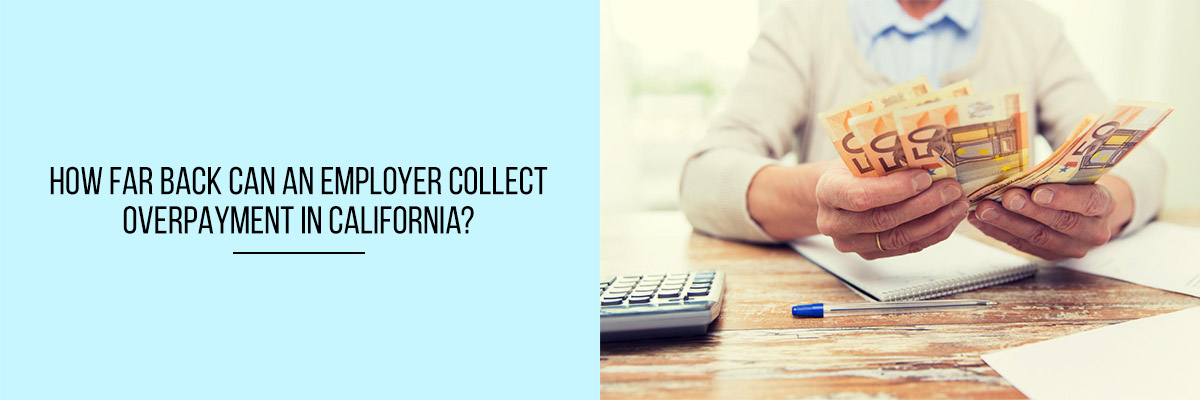In the complex realm of employment law, the issue of payroll overpayments by employers can pose significant challenges for both parties involved. Among the myriad factors to consider, one crucial question arises: How far back can an employer collect overpayment in California?
Delving into this topic sheds light on the legal framework and rights of employees in such scenarios. Let’s explore the intricacies of overpayment recovery in the Golden State.



Understanding Overpayment Recovery in California:
In California, the ability of employers to collect overpayments hinges on several key factors, primarily the legality of the overpayment and the method of recovery employed. Here’s a breakdown:
Legality of the Overpayment
- Accidental Error: When a payroll overpayment occurs due to an inadvertent mistake, such as a payroll miscalculation or administrative oversight, California law typically grants employers a window of three years to rectify the error. This timeframe allows employers to address the issue promptly and take corrective action to recover any funds disbursed in error.
- Employee Fault: Conversely, if the overpayment arises from intentional misconduct on the part of the employee, such as time theft or falsification of records, the recourse available to employers extends beyond the standard three-year period. In such cases, where the employee’s actions directly contribute to the overpayment, employers have a longer timeframe within which to pursue legal action and seek restitution for the erroneous payments.
Method of Recovery
- Written Agreement: If both parties agree to a repayment plan documented in writing, there’s no specific legal restriction on how far back deductions can be extended. However, it’s essential for such agreements to be reasonable and in accordance with income limitations. This approach offers flexibility in establishing repayment terms that both the employer and employee find acceptable.
- Deductions from Wages: California law sets a clear boundary to protect employees’ financial stability by capping the amount that employers can deduct from their wages. Specifically, employers are prohibited from deducting more than 25% of an employee’s disposable earnings in any given pay period. This safeguard ensures that employees retain a significant portion of their income to cover essential living expenses.
- Legal Action: In situations where employers resort to legal action to recover overpayments, the statute of limitations can vary depending on the specific legal claim pursued. This underscores the importance of seeking professional legal guidance to navigate the complexities of legal proceedings effectively.
Important Considerations
- Reasonable and Good Faith Practices: Employers are expected to act reasonably and in good faith when recovering overpayments. This includes considering the financial circumstances of the employee to avoid causing undue hardship. By demonstrating empathy and understanding, employers can navigate the process more effectively.
- Caution with Verbal Agreements: Verbal agreements for repayment should be approached with caution. To avoid misunderstandings and ensure clarity, it’s advisable to obtain written documentation outlining the repayment terms. This documentation serves as a protective measure for both parties involved.
- Seeking Professional Guidance: For complex situations or concerns about overpayment, repayment terms, or potential legal issues, seeking advice from an employment lawyer is recommended. Employment lawyers can provide personalized guidance based on the specific circumstances, helping employees and employers navigate the process with confidence.
Conclusion
Navigating the complexities of overpayment recovery in California requires a thorough understanding of state laws and regulations. By grasping the nuances of legality, methods of recovery, and key considerations, both employers and employees can navigate this terrain with clarity and confidence. Remember, seeking professional advice and ensuring clear communication are integral to resolving overpayment issues effectively and fairly.


